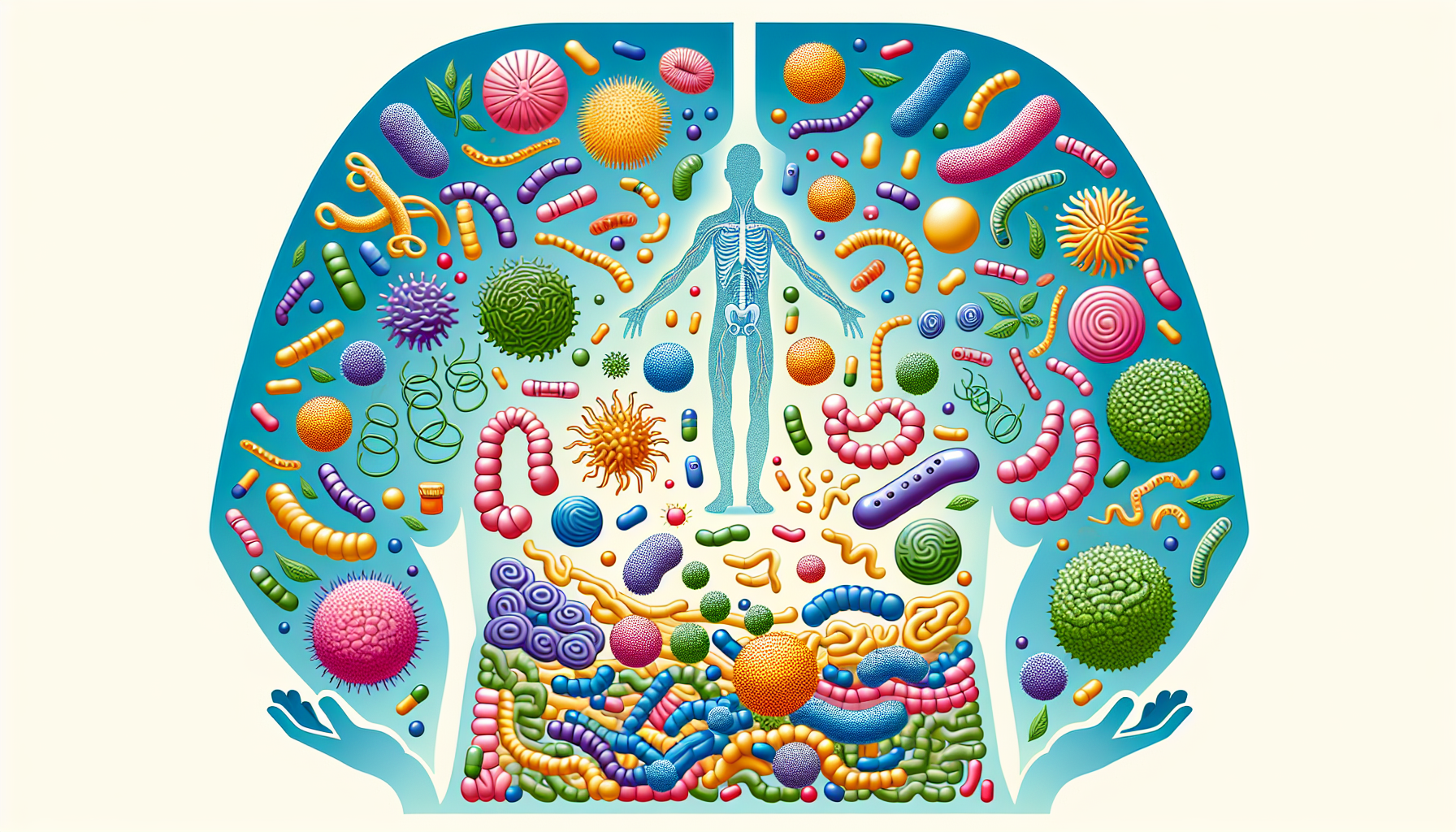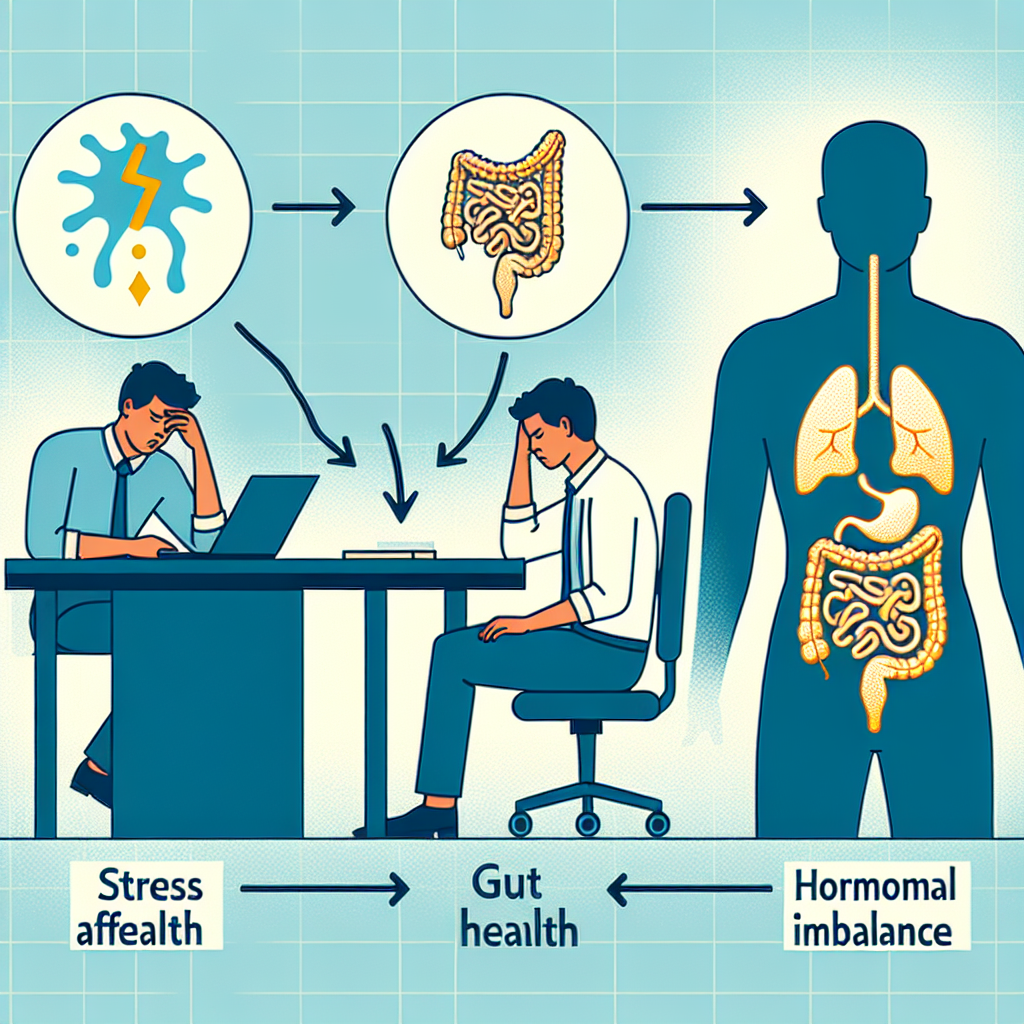The intricate dance between gut health and hormonal balance is one of the most compelling dialogues within the human body. This relationship is so profound that it often goes unnoticed until imbalances manifest, leading to a cascade of health issues. In recent years, the scientific community has turned its gaze towards the gut, not only as the epicenter of digestion but also as a critical determinant of our overall well-being. Understanding this link can unlock new pathways to managing health and preventing disease.
Understanding Gut Health
Gut health refers to the function and balance of bacteria in the gastrointestinal tract. Ideally, organs such as the esophagus, stomach, and intestines all work together to allow us to eat and digest food without discomfort. But the gut is also home to trillions of bacteria, known as the gut microbiota, which play an essential role in digesting food, absorbing nutrients, and defending against pathogens.
The Gut Microbiota and Hormones
The gut microbiota interacts with the body’s endocrine system, which is responsible for hormone production and regulation. For instance, certain gut bacteria can influence the levels of the stress hormone cortisol, or impact how estrogen is metabolized in the body, which can have profound effects on everything from mood to metabolism.
Hormonal Balance and Its Significance
Hormonal balance is the proper regulation of hormones in the body, which is essential for maintaining homeostasis. Hormones like insulin, cortisol, estrogen, and thyroid hormones must be balanced for optimal health. They regulate our energy levels, weight, mood, and even our sleep patterns.
Disrupted Hormonal Balance
When hormones are out of balance, it can lead to conditions such as diabetes, thyroid disorders, and polycystic ovary syndrome (PCOS). Moreover, hormonal imbalances can influence skin health, which is why maintaining gut health can also be reflected in our skin’s condition. For further insights into this connection, explore how gut health impacts skin conditions.
The Gut-Hormone Connection
The bidirectional relationship between the gut and hormonal systems is termed the gut-hormone axis. Let’s delve into some specific hormones that are particularly influenced by gut health:
Insulin
Insulin is a hormone produced by the pancreas that helps control blood sugar levels. Research has shown that gut bacteria can influence insulin sensitivity, which can either protect against or contribute to the development of type 2 diabetes.
Estrogen
Gut bacteria produce an enzyme called beta-glucuronidase which helps modulate the levels of circulating estrogen. An imbalance in these bacteria can lead to either an excess or deficiency of estrogen, with implications for conditions such as PCOS, breast cancer, and osteoporosis.
Cortisol
Cortisol, the stress hormone, can be affected by the gut microbiota as well. Chronic stress can change gut bacteria composition, and conversely, an unhealthy gut can heighten the body’s stress response.
Thyroid Hormones
The microbiota can also influence the conversion of thyroid hormones, which are critical for regulating metabolism, energy production, and neurological function.
Factors Affecting Gut Health
Several lifestyle and dietary factors can positively or negatively impact gut health. These include:
Diet
A diet high in fiber, fruits, vegetables, and fermented foods can promote a healthy gut microbiome. Conversely, diets high in sugar, fat, and processed foods can lead to dysbiosis, an imbalance of gut bacteria.
Antibiotics and Medications
While antibiotics are necessary to combat certain infections, they can also disrupt the gut microbiota. It’s important to understand the role of antibiotics in gut flora disruption.
Stress
Stress can alter gut bacteria and gut permeability, which can, in turn, affect hormone levels. Managing stress is therefore crucial for maintaining gut health.
Strategies for Supporting Gut Health and Hormonal Balance
To harness the power of the gut in regulating hormones, consider the following strategies:
Incorporate Probiotics and Prebiotics
Fermented foods like yogurt, kefir, and sauerkraut are rich in probiotics. Prebiotic foods, such as garlic, onions, and bananas, feed the healthy bacteria in the gut. Learn how fermented foods contribute to gut health.
Eat a Diverse, Nutrient-Rich Diet
Include a variety of fruits, vegetables, whole grains, and lean proteins to ensure a diverse microbiome and support hormonal functions.
Regular Medical Screening
Regular screening for colorectal and other hormonal-related health issues can catch problems early. For more information, visit the importance of regular medical screening for colorectal health.
Manage Stress
Engage in regular physical activity, mindfulness practices, and ensure adequate sleep to help manage stress and support gut health.
Avoid Unnecessary Antibiotics and Medications
Use antibiotics only when prescribed and necessary, and discuss the potential impacts on gut health with your healthcare provider.
Consult with Healthcare Professionals
Always consult with healthcare professionals before making any significant changes to your diet or lifestyle, especially if you have existing health conditions or concerns.
Conclusion
The relationship between gut health and hormonal balance is a testament to the complexity and interconnectedness of our bodies. By nurturing our gut health, we can foster a more robust and resilient hormonal system, leading to improved overall health and well-being.
For those looking to delve deeper into the subject, consider exploring these high-quality, niche resources:
- A comprehensive review published by the National Institutes of Health on the microbiota-gut-brain axis.
- An insightful article from the Endocrine Society about the gut microbiome’s connection to hormones.
- A detailed exploration by Harvard Health on how probiotics can influence mood and cognitive function.
- An academic paper from Frontiers in Endocrinology discussing the role of gut microbiota in endocrine signaling.
By diligently applying knowledge and strategies to maintain gut health, we can create a harmonious environment that supports balanced hormone levels and leads to a healthier life.



